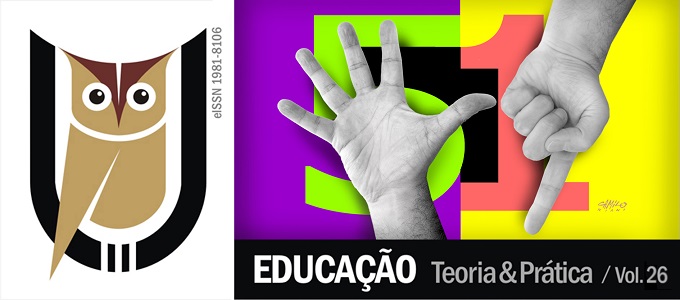Personal file: saved roles of a teacher telling stories
DOI:
https://doi.org/10.18675/1981-8106.vol26.n51.p126-141Keywords:
arquivo pessoal, escrita autobiográfica, arquivo de professoraAbstract
Working with personal archives of teachers has expanded the ways to realize professional careers and allows visibility of pedagogical practices developed in the daily school. The aim of this paper is to understand the school relationships that go beyond the classroom and open up possibilities for the pedagogical practices in public schools in Minas Gerais in the century XX. It was used documents, personal writings, photographs and a series of records about professional career of Djanira Vaz Pereira, a teacher-former director of the Melo Viana School. The storage of documents suggests more than a systematic concern for the preservation of the academic past, appears to make sense of this constitutive material itself, which has in the dialogue between building self-image and scenes of daily professional work. The study takes us design our eye on the place and the importance of working with personal archives of teachers that make their own records, a legacy to understand education. Keywords: Personal Archive; Autobiographical Writing; Teachers Archive.Downloads
Additional Files
Published
How to Cite
Issue
Section
License
Authors who publish in this journal agree to the following terms:
a) Authors assign copyright to the journal, with the work simultaneously licensed under the Creative Commons Attribution License that allows sharing of the work with acknowledgment of authorship and publication in this journal.
b) The policy adopted by the Editorial Committee is to assign copyright only after a period of 30 months from the date of publication of the article. After this time, authors interested in publishing the same text in another work must send a letter to the Editorial Committee requesting the release of the assignment of copyright and wait for a response.
c) This journal provides public access to all its content, since this allows greater visibility and reach of published articles and reviews. For more information on this approach, visit the Public Knowledge Project, a project that developed this system to improve the academic and public quality of research, by distributing OJS as well as other software to support the public access publication system to academic sources. The names and email addresses on this website will be used exclusively for the purposes of the journal and will not be available for other purposes. This journal provides open any other party  This work is licensed under a Creative Commons License
This work is licensed under a Creative Commons License











